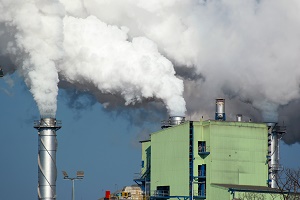
Can low-cost sensors help us gather more data from many more locations, rendering air pollution monitoring more precise and inexpensive at the same time? Can they help us determine our own exposure to bad air quality? A lot of questions have arisen around the topic of low-cost air quality sensors, some touting them as silver bullet for air pollution science and control. As with many things, the reality is much more complex.
This week (2-4 May 2018) at their annual meeting, experts of the Task Force on Measurements and Modelling, a task Force under the UNECE Convention on Long-range Transboundary Air Pollution, discussed a recent assessment (see the draft here) on low-cost sensors coordinated by the World Meteorological Organization (WMO), which was supported by a broad stakeholder community, including the Task Force itself.
It is clear that more comprehensive air monitoring through low-cost sensors could bring about a lot of benefits, including new services and involvement of a completely new group of users. Low-cost sensors might thus become a game changer when it comes to applications such as air quality monitoring, health assessments and traffic management, to name just a few.
However, as these sensors encompass a wide variety of technologies, they can also deliver a wide range of data quality. Experts in the meeting therefore agreed that it is important for users to ensure that the sensor used meets the data quality requirements of the specific project. While these sensors cannot substitute reference instruments, they can be used to complement conventional monitoring. Knowledge and data exchange for further development of these sensors is hence important. The conclusions of the Task Force meeting will be forwarded to the Fourth Joint Session of the Cooperative Programme for Monitoring and Evaluation of the Long-range Transmission of Air Pollutants in Europe (EMEP) Steering Body and the Working Group on Effects to be held in Geneva in September 2018 (10-14 September 2018).

